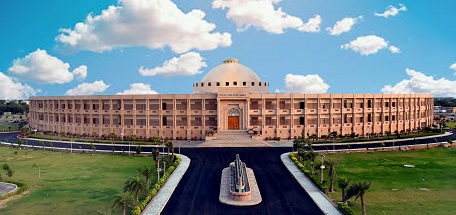The Rajasthan High Court stated that the basic rights of deserving students should not be hindered by technical issues in the NEET exam case.

The Rajasthan High Court stated that students’ merit should be the only factor for assigning seats or colleges, and that the rights of deserving students should not be hindered by technical issues. This comment came from the Jaipur Bench during a series of Writ Petitions filed by students regarding the NEET Exam. Justice Sameer Jain, in a Single Bench, noted that the cases cited by the respondents were based on different facts and should not apply here. He emphasized that, based on previous rulings, the merit of the petitioners must be the sole basis for seat allocation, and that technicalities should not violate the fundamental rights of deserving candidates. He concluded that these petitions are among the rare cases that require judicial action.
The Bench highlighted the importance of evaluating candidates based purely on merit, fairness, and transparency in the admission process. Advocate Vivek Joshi represented the Petitioners, while AAG Vigyan Shah represented the Respondents.
The National Testing Agency (NTA) announced a Public Notice inviting applications from candidates across India for the NEET-UG Examination, 2024. The Petitioners, who are students with high hopes and the necessary qualifications, took part in this exam. After the general counseling was completed, the authorities issued a notification for a Stray Vacancy Round for MBBS and BDS Courses. The Petitioners’ counsel argued that they had better merit than the Respondent-students. It was also stated that during the document verification for the Stray Vacancy Round, the Petitioners provided the required documents to the officials.
However, a staff member of the Respondents requested the Petitioners to submit an affidavit because ‘Biology’ was not listed on their Class XI mark sheets. The Petitioners explained that they were promoted from Class XI to Class XII during the COVID-19 pandemic, a decision that applied to all students that year as per government directives. Later, the Respondents released a Provisional Combined Allotment list for college placements, but the name of Petitioner No.1 was missing, even though she was included in the initial list and had submitted all necessary documents. She raised her concerns, but no action was taken. As a result, the matter was brought before the High Court.
The High Court, after listening to the arguments from the lawyers, stated, “A good college, based on merit, is the reward that candidates earn through their hard work and goals in life. This should never be compromised, and merit must take priority over any other criteria.” The Court instructed the Respondents to evaluate the Petitioners’ applications solely based on their NEET UG Examination, 2024 scores and to assign them to Medical Colleges accordingly. “The applications for Colleges from respondents 5 and 6 are denied based on their merit compared to the petitioners. The Respondents must complete the necessary actions promptly, as classes for the current academic year have already started,” it added. Thus, the High Court approved the Writ Petitions.
Cause Title: Kanchan Kumawat v. Union of India & Ors. (Neutral Citation: 2024:RJ-JP:46833)








